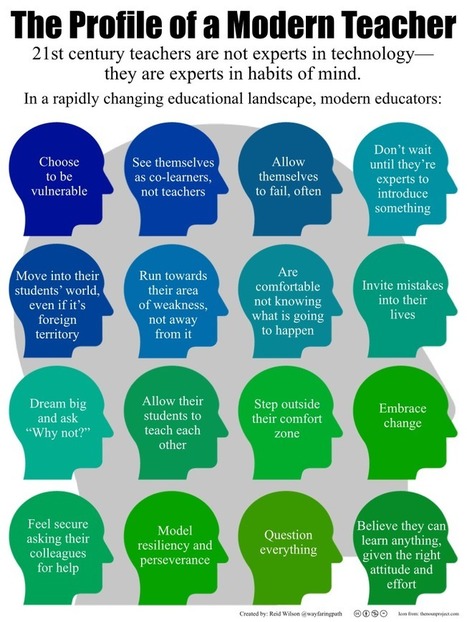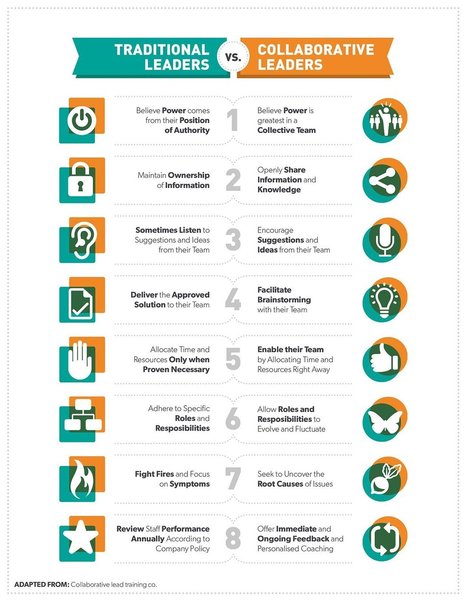During this time of significant educational change, we are forced to ask ourselves, what is the role of the teacher?
Teachers continue to be central to learning, but the role is changing significantly. Our children still need to develop real skills and real knowledge, but they also need to be self-reliant, resilient, and fully capable of re-inventing themselves. This means students must learn how to self-direct their learning.
So if students are self-directing their learning, what's the role of the teacher?
Teachers build the curriculum/lessons with the individual student based on his/her needs and interests rather than move through a fixed curriculum en masse.
Teachers provide the experiences and tools to access new knowledge in specific areas of interest as facilitators of individual pathways, rather than being a provider of the content or expert in one or every area,Teachers become experts in how people learn, not only in teaching.
Teachers support a community of learners in teams, possibly of multiple ages, rather than alone in classrooms with fixed grades of students.
Teachers have more autonomy over their daily schedule, and can be flexible to adjust their schedules to support student needs.
Teachers provide opportunities for real-world, connected, practical learning rather than isolated academics.
These are the types of changes in the teacher's role that are fundamental to developing students who are capable of independent learning and reinvention in a rapidly changing world.
Learn more / En savoir plus / Mehr erfahren:
Via Gust MEES



 Your new post is loading...
Your new post is loading...












